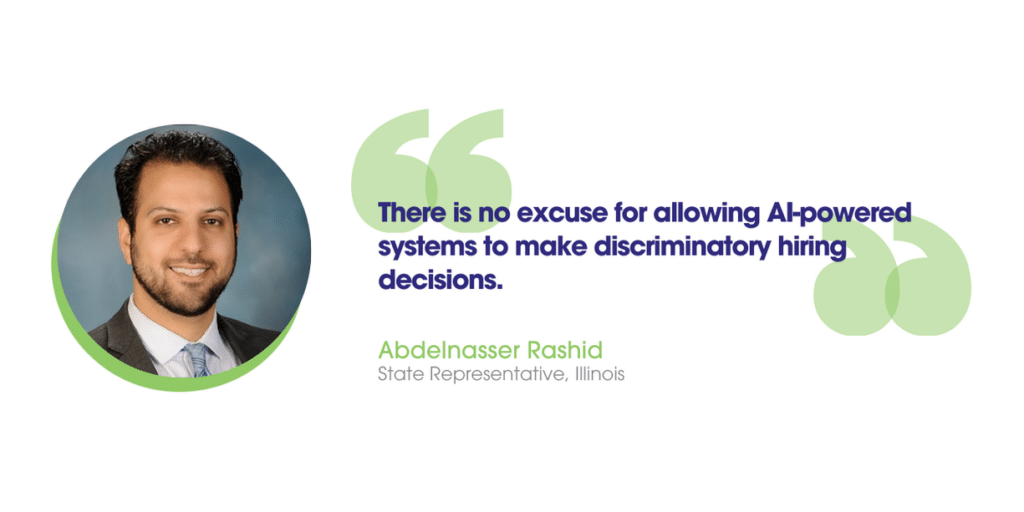Illinois Governor JB Pritzker has signed H.B. 3773, an amendment to the Illinois Human Rights Act, which now makes it illegal for companies within the state to use AI in their hiring practices without informing workers and applicants of its use in the process.
- The mandatory disclosure of AI utilization is part of the amendment’s larger goal to ban discriminatory hiring practices as a result of AI technology.
- The law may serve as a precursor for regulations surrounding AI in the workplace as companies across most industries race against one another to find beneficial ways to implement artificial intelligence.
“There is no excuse for allowing AI-powered systems to make discriminatory hiring decisions,” says Rep. Abdelnasser Rashid, who co-sponsored the bill. “I am proud that Illinois is enacting legislation to protect workers by banning artificial intelligence systems from considering factors such as race or ZIP codes in employment decisions.”
The bill, which was initially introduced in the Illinois House in February 2023, passed the House on a vote of 106-0 in April and passed the Illinois Senate 57-0 in May before being signed by Gov. Pritzker in August.

What Does This Law Mean For Promo Businesses?
H.B. 3773 will have implications on Illinois businesses – particularly large businesses – that are regularly increasing their workforce or navigating turnover and have looked to AI to create efficiencies in the hiring process.
- The law will go into effect Jan. 1, 2026.
In the meantime, the bill leaves it to the Illinois Department of Human Rights to develop rules for the implementation and enforcement of the law and the specifics requirements of how and when companies must notify employees about the use of AI.
This legislation is a sweeping, bipartisan statement that, even if AI allows companies to consider a larger pool of candidates while streamlining the entire process, it is still counterproductive if the technology is discriminatory in practice.
Decisions that will fall under the umbrella of having to adhere to AI laws include:
- Recruitment
- Hiring
- Promotion
- Renewal of employment
- Selection for training or apprenticeship
- Discharge
- Discipline
- Tenure
- The terms, privileges, or conditions of employment
One way that the law specifies outlawed discrimination is the restriction of ZIP codes as a proxy for protected classes (race, sex, age, disability, etc.) in the hiring process. This puts the burden on the company to be aware of and responsible for what goes into the algorithm used in any AI utilized in hiring.
Could There Be More AI Laws To Come?
The Illinois law applies specifically to AI used in hiring, but as the technology of AI evolves and continues to be a buzzword among executives hoping to grow their businesses, H.B. 3773 could prove to be something of a precursor.
As things stand, AI is being incorporated into most facets of labor without significant regulation, but that may be changing. In March, the Bipartisan Senate Artificial Intelligence Working Group released a “roadmap” for developing AI policy in the U.S. Senate.
The 31-page document addresses potential harms posed by AI, innovation funding for AI and the implications AI technology will have on the United States workforce.
The AI Working Group states plainly that “AI use cases should not directly or inadvertently infringe on constitutional rights, imperil public safety or violate existing antidiscrimination laws.”


